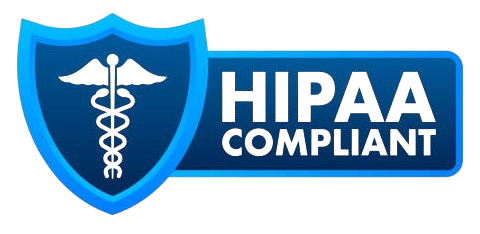

Welcome to A Plus RCM
Trusted by Thousands for Reliable RCM Solutions
Aplus RCM is a leading medical billing company in the United States, dedicated to helping healthcare practices achieve optimal financial performance. As a premier Revenue Cycle Management (RCM) provider, we empower medical practices to streamline operations, reduce errors, and maximize revenue.
Partner with Us for Seamless RCM Solutions
- Consult with Our Experts: Schedule a meeting with our specialists to discuss your challenges and goals. We’ll craft the most effective solution tailored to your needs.
- Effortless Implementation: Our dedicated training and implementation teams handle everything—from planning and technology setup to seamless integration within your healthcare practice.
- 24/7 Support & Strategic Growth: Our expert RCM teams work around the clock to provide long-term financial planning and advisory services, helping your practice stand out in the competitive healthcare industry.
Specialized Medical Billing and Accreditation Support Services
Maximise efficiency and revenue with our extensive billing and credentialing solutions. At Aplus RCM, we oversee the entire process, including claims submission, insurance verification, and provider credentialing, which enables timely payouts and minimizes administrative tasks. Prioritizing excellent patient care, we also navigate the intricacies of your revenue cycle management.

Why Choose Aplus RCM?
What Makes Us Your Ideal Excellence in Medical Billing and Client Care
At Aplus RCM, we are committed to providing top-notch service focused on precision and client satisfaction. Our certified team works diligently to process your claims accurately, minimizing mistakes and speeding up reimbursements. Through innovative technology, we simplify the billing process, allowing you to save valuable time and increase your practice’s profitability.
What Sets Us Apart
Key Benefits of Our Expert Medical Billing Services
At Aplus RCM, we combine advanced technology, transparent pricing, and personalized support to deliver customized end-to-end solutions that align with your practice’s specific needs. Partner with us and focus on what matters most—providing exceptional care—while we manage the complexities of billing and credentialing to help your practice succeed.
- Certified Experts
- Quick Claims Processing
- Seamless Technology Integration
- Maximized Revenue
- Fully HIPAA-Compliant
- Clear, Transparent Pricing
- Detailed Reporting
- Comprehensive End-to-End Solutions



Service Overview
Reliable & Affordable Credentialing Solutions
At Aplus RCM, we provide seamless credentialing services to ensure timely approvals and compliance for your practice. When administrative burdens slow you down, our expert credentialing solutions streamline the enrollment process, allowing you to focus on patient care.
We are a client-centered organization—your success is at the heart of everything we do. As your trusted partner, we bring efficiency, accuracy, and compliance-driven solutions to ensure smooth payer enrollment and provider credentialing.


Service Overview
Reliable & Affordable Medical Billing Solutions
At Aplus RCM, we provide seamless medical billing services to ensure timely reimbursements and financial stability for your practice. When administrative burdens slow you down, our expert billing solutions streamline your revenue cycle, allowing you to focus on patient care.
We are a client-centered organization—your success is at the heart of everything we do. As your trusted partner, we bring efficiency, accuracy, and compliance-driven solutions to optimize your practice’s financial performance.


Service Overview
Reliable & Affordable AR Recovery Solutions
At Aplus RCM, we specialize in Accounts Receivable (AR) Recovery to help healthcare providers reclaim lost revenue and improve cash flow. Unpaid or delayed claims can strain your practice’s financial health—our expert AR recovery services ensure timely reimbursements and financial stability, allowing you to focus on patient care.
We are a client-centered organization, committed to efficiency, accuracy, and compliance-driven solutions that optimize your practice’s financial performance.


Service Overview
Reliable & Affordable RCM Solutions
At Aplus RCM, we provide seamless RCM services to ensure timely reimbursements and financial stability for your practice. When administrative burdens slow you down, our expert solutions streamline your revenue cycle, allowing you to focus on patient care.
We are a client-centered organization—your success is at the heart of everything we do. As your trusted partner, we bring efficiency, accuracy, and compliance-driven solutions to optimize your practice’s financial performance.


Service Overview
Reliable & Accurate Medical Coding Solutions
At Aplus RCM, we provide seamless medical coding services to ensure accurate claim submissions, timely reimbursements, and financial stability for your practice. With ever-changing regulations, coding errors can lead to claim denials and revenue loss. Our expert coding solutions streamline your revenue cycle, ensuring compliance and efficiency while allowing you to focus on patient care.
We are a client-centered organization—your success is at the heart of everything we do. As your trusted partner, we bring precision, efficiency, and compliance-driven solutions to optimize your practice’s financial performance.


Service Overview
Reliable & Affordable Practice Management Solutions
At Aplus RCM, we provide seamless Practice Management Services to enhance operational efficiency, ensure financial stability, and optimize workflow for healthcare providers. When administrative burdens slow you down, our expert solutions streamline daily operations, allowing you to focus on delivering exceptional patient care.
We are a client-centered organization—your success is our priority. As your trusted partner, we bring efficiency, accuracy, and compliance-driven strategies to help your practice run smoothly and profitably.
Why Choose Top Features Offered
At Aplus RCM, our success is driven by the dedication and expertise of our team. We take immense pride in our staff’s achievements and their unwavering commitment to delivering exceptional services. Our goal is to support healthcare providers with seamless medical billing solutions that improve financial outcomes while allowing them to focus on patient care.
-
Comprehensive Reporting
Gain valuable insights into your practice’s financial health with our detailed reporting system. We provide in-depth analytics and real-time performance tracking.
-
HIPAA-Compliant Services
We prioritize security and confidentiality by strictly adhering to HIPAA regulations. Our processes are designed to safeguard patient information while ensuring compliance with industry standards.
-
Maximized Reimbursement Rates
Our experts work diligently to optimize claims submission, reduce denials, and accelerate reimbursements. With precise coding and efficient claim management, we help maximize your revenue.
-
Insurance Verification & Credentialing
We assist in provider credentialing and insurance verification, reducing administrative burdens and ensuring seamless payer interactions.
-
End-to-End Services
From insurance verification to claims processing and denial management, we handle every aspect of your revenue cycle. Our comprehensive solutions free you from administrative burdens.
-
Advanced Technology Integration
We leverage cutting-edge technology to streamline billing operations, reduce errors, and enhance efficiency. Our automated solutions ensure accuracy and faster claim processing.
Contact us now! 888-791-4764
To streamline your billing process.
- OR SEND US A MESSAGE
312 SW Greenwich Dr, Lee's Summit, MO 64082
You can contact us through any channel that is more convenient to you.
- GET QUOTATION














